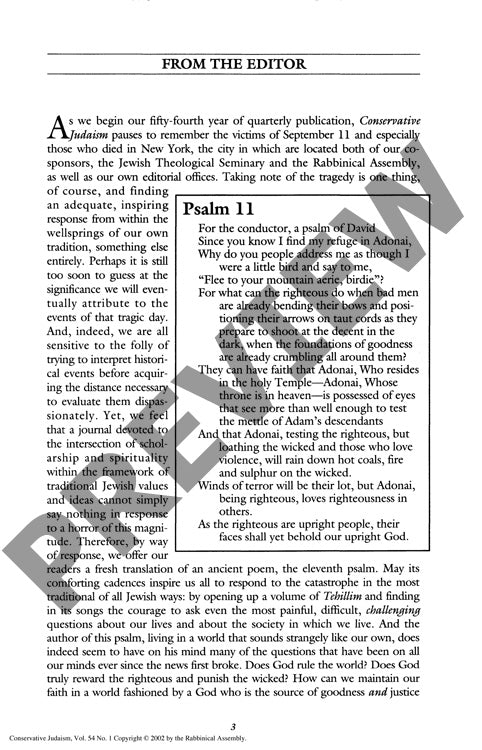From the Editor
Couldn't load pickup availability
This editorial essay examines the theological and philosophical challenges posed by the September 11 attacks through the lens of traditional Jewish scholarship and spirituality. The author employs a hermeneutical methodology, offering a fresh translation and interpretation of Psalm 11 as a framework for understanding catastrophic events within Jewish tradition. The analysis explores fundamental questions regarding divine justice, theodicy, and the maintenance of faith in the face of inexplicable suffering. Through close textual examination of the psalm, the study demonstrates how ancient Jewish poetry addresses contemporary concerns about God's role in a world where evil appears to triumph over righteousness. The research reveals that the psalmist's response to theological paradox involves embracing both divine presence and worldly suffering without retreating into disbelief or denial. The principal finding suggests that Jewish tradition offers a sophisticated approach to theodicy through the concept of history as divine test rather than cosmic contest. The author concludes that faith serves not as escapism but as an interpretive tool for understanding creation's complexity, arguing that the existence of evil does not necessarily indicate divine absence or indifference. This analysis contributes to understanding how traditional Jewish texts provide resources for contemporary theological reflection on tragedy and suffering.

More Information
-
Physical Description
-
Publication Information
Published 2001
ISBN
-
Publication Credits
Martin Cohen

